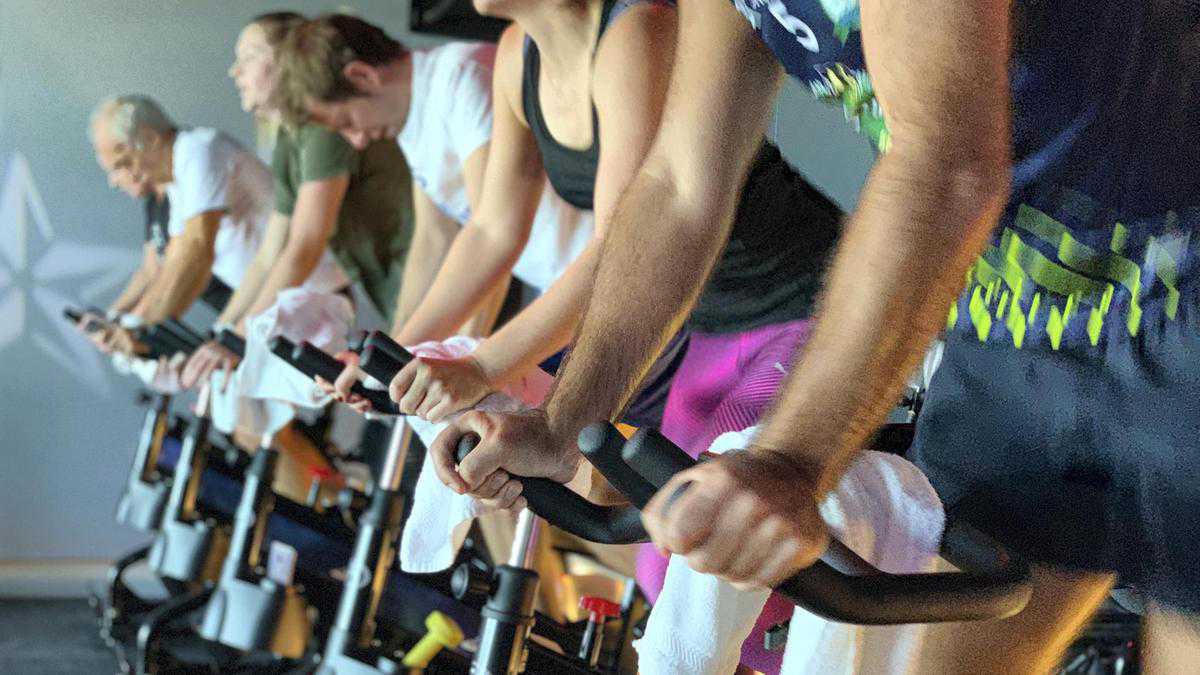Ramadan 2019: the best time to exercise when fasting
15 May, 2019

It can be hard to maintain a normal work-out routine during Ramadan, due to a lack of liquids and interrupted sleeping patterns.
However, in order to remain healthy during the holy month, finding the time to work out will help to keep energy levels up, your mind clear and your metabolism stable.
“The holy month should not be when you give up on your fitness goals. Rather, make Ramadan a time to recharge so you can hit the gym strong after these four weeks,” says Ahmed Al Sayed Ahmed, a personal trainer at Fitness First.
Which kind of work-out is best?
A faster himself, Al Sayed Ahmed focuses on three basic fitness aspects in each work-out: strength training, cardio and flexibility. “The reason I prioritise muscular strength is because a loss of muscle mass will slow down your metabolism. The goal ought to be to avoid both: losing muscle and a drop in your metabolic rate,” he says.
“When it comes to cardio, I recommend a light-intensity session, limited to 30 minutes of slow, steady distance, every other day. Remember, you will be dehydrated so your body will use your fat storage as a source of energy, especially if you do your cardio before iftar. However, the fact that you’re depleted means your blood pressure might drop at onset or even after, so don’t skip warm-up and cool-down routines.
“Similarly, when you start your resistance training, choose exercises that target the upper body before the lower body to avoid any drop in your blood pressure during or after. The last fitness aspect to focus on is flexibility to avoid any mobility-related issues you might face, especially when you exercise normally again after Ramadan and during the Eid break.”
he best time to work-out
During the fast, with high temperatures and no liquids from sunrise to sunset, you will compromise your health by pushing yourself too much. It is not recommended to do intensive cardio workouts and heavy weight-training exercises while fasting. You should also cut your routine down to two cardio sessions a week throughout the holy month.
Here are the four best options for working out during Ramadan, according to Fitness First:
90 minutes before sunset
A light work-out towards the cooler part of the day will mean you can soon replenish yourself with water, and you will reap the benefits of exercising on an empty stomach. However, any work-out done at this time should be low-key with more resistance training, low repetitions and weights, and lots of stretching. This is also a good time for a short brisk walk or light jog.
After your evening meal
While cardio can be difficult on a full stomach, around one hour after iftar is a good time for weight training. On the days you plan to exercise after your meal, you may want to add in a little extra food to fuel your body, and ensure you drink plenty of water to rehydrate.
Between 11pm and 2am
For night owls, the best time to work out may be between 11pm and 2pm, after your food has had a little time to settle and your body has fully rehydrated. If you have managed to get some rest in the afternoon, exercising at this time can be favourable, as it is cooler than the day time, and will still leave you with a couple of hours more sleep until you get up to start the day.
Between 3am and 4am
For early risers, the best time to work out may be just before your morning suhoor. This way, you will have energy from the previous night’s meal, yet still have an empty stomach. You can hydrate while you exercise and once you are done you can eat again to refuel. This method will also get you get energised for the day ahead.
TAG(s):
